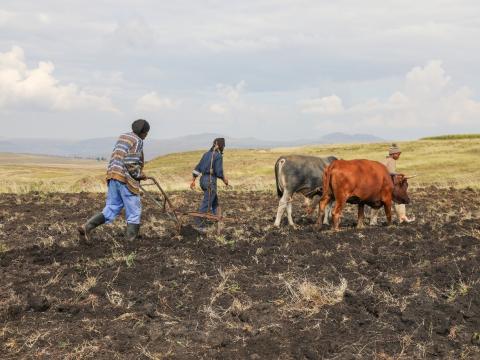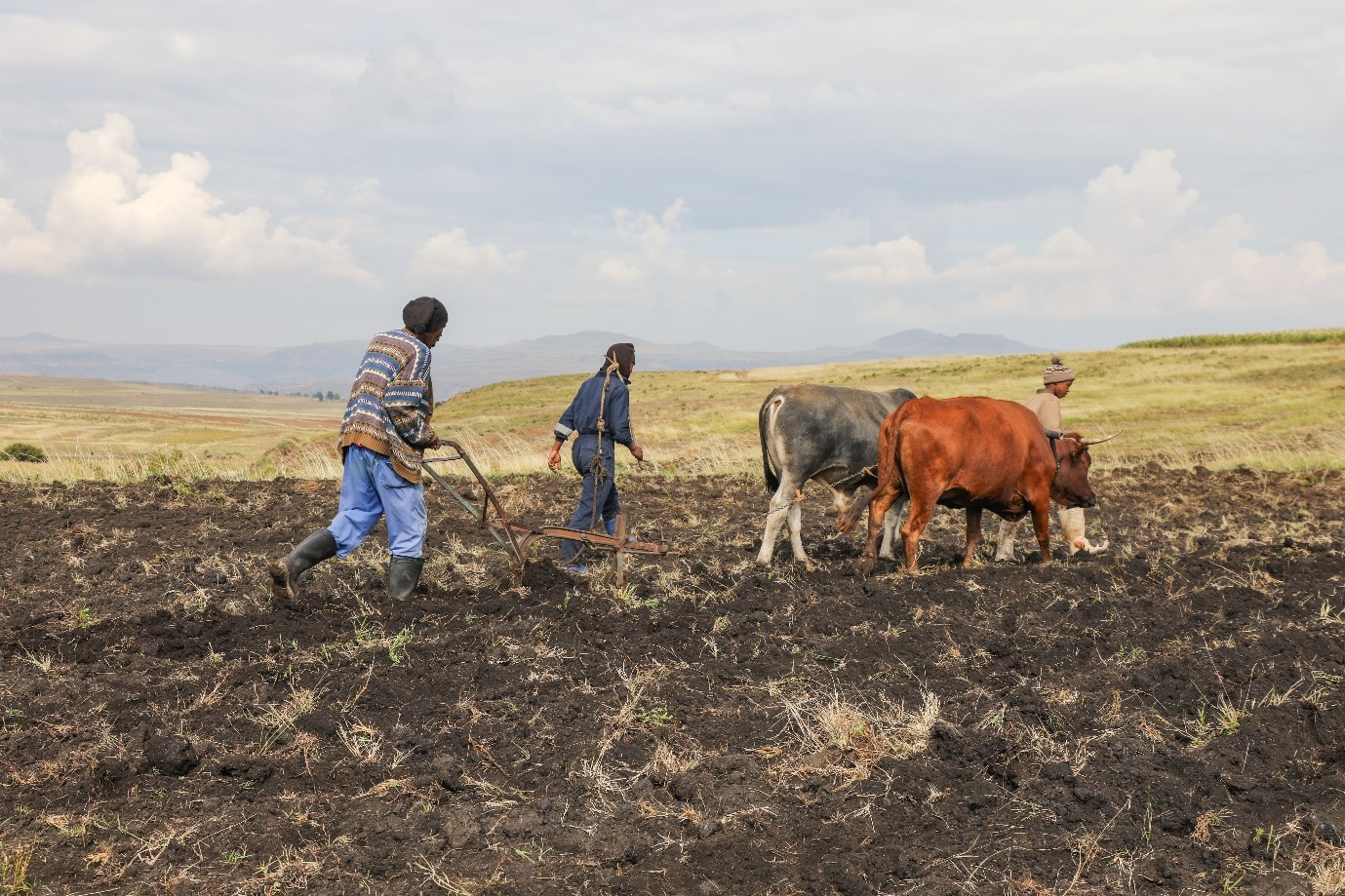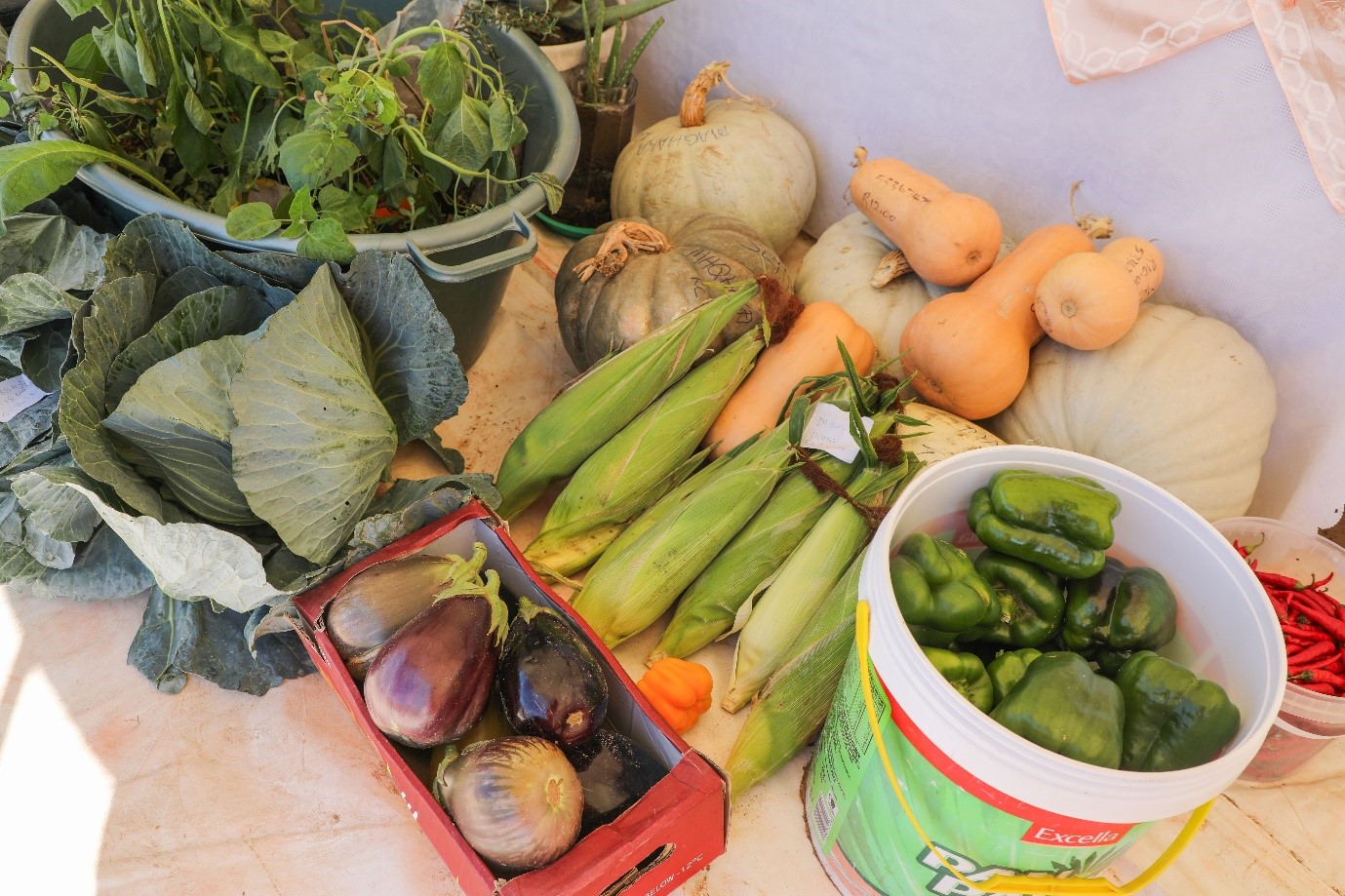How World Vision's Interventions Are Renewing Communities in Matelile, Lesotho

By: Reentseng Phephetho, Communications & Digital Officer, Lesotho

In the underprivileged region of Matelile, Lesotho, the impact of extreme poverty on children's development has been devastating. Coupled with the global crisis of climate change, many households are facing severe food insecurity. The Ha Mantsei Matelile Area Program has been particularly affected, with high unemployment rates leaving children and families struggling to survive. "I have several times, with the little seeds that I had, tried to plant some crops to feed my family. But they never succeeded due to lack of rain and my crops would dry, up leaving my family with nothing to eat," echoed Mr. Hlekefa Ratlali, a member of the community.
Individual farming efforts, often hindered by a lack of the relevant agricultural skills, have left gardens dry and barren, unable to produce enough food for daily survival. As a result, close to 32 children in this village have dropped out of school due to the lack of support from their parents on food and required school supplies. The livestock, too, have suffered, with scarce grass and water making it difficult for them to survive.
Through The Livelihoods & Resilience Technical Program, World Vision Lesotho has partnered with this community and aims to graduate the most vulnerable families out of extreme poverty, enabling them to become economically self-reliant and provide for their children with dignity.
To this end, in one of the interventions World Vision helped a group of herdsmen who named themselves the "Kopanang Mantsei,"meaning “Let’s unite as Mantsei community”, which comprises local men who were trained in climate-smart agriculture. This training equipped them with the necessary skills for successful crop production. Additionally, they were provided with seeds for both individual and cooperative commercial purposes. For their livestock, the group received training in rangeland management and seeds for drought-resistant grass, ensuring better survival prospects. Since they began in November 2022, the group has had 8 crop cycles which have yielded a significant quantity of crops and M13,000 in sales. Previously, the farmers would have only 2 crop cycles and earn M1,800 in sales.

"Before all these interventions, it was not easy to achieve what we are able to achieve now. Some of us were even able to produce superior crops and sell to support our families. Our children are able to attend school without any problem. We have even engaged in diverse production where we can now produce different vegetables on one plot. Indeed poverty is the story of the past," shared Masilo, one of the herd boys from the Kopanang Mantsei group.
Mr. Hlekefa emphasized their commitment to helping others in the community, including people with disabilities, by sharing vegetables so that everyone can have enough to eat. He highlighted their long-term commitment to this cause, saying, "Our plan is to carry through this project because we have benefited a lot from this cooperation. As I speak, we are at the fields planting some vegetables that we hope to sell and feed our families."
The transformation of the communities in the Matelile Area Programme is a testament to the power of collaboration and targeted interventions. The promise to sustain and grow this project is indeed satisfying and promising, marking a new chapter of hope and prosperity for the people of Mantsei.
World Vision’s efforts have not only alleviated hunger and poverty but have also restored the dignity and future prospects of these resilient communities. The story of Mantsei is a shining example of how dedicated support and training can empower individuals to break free from the cycle of poverty and create a better future for themselves and their children.